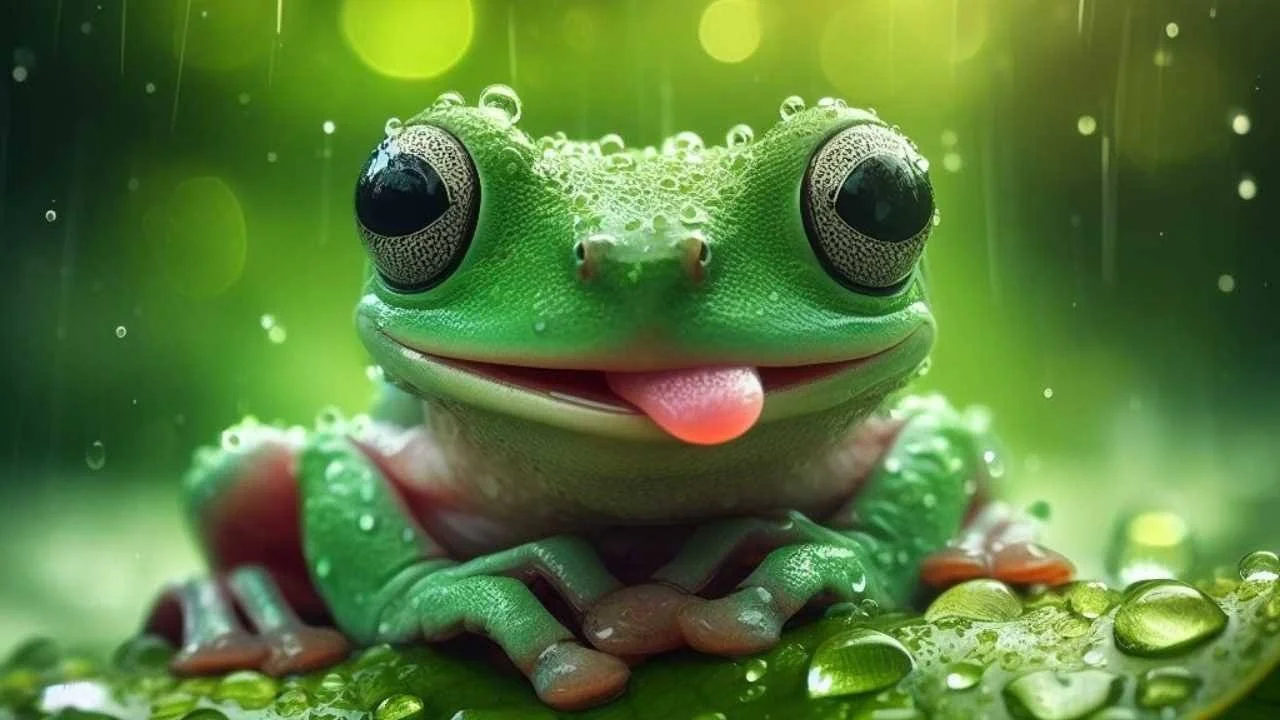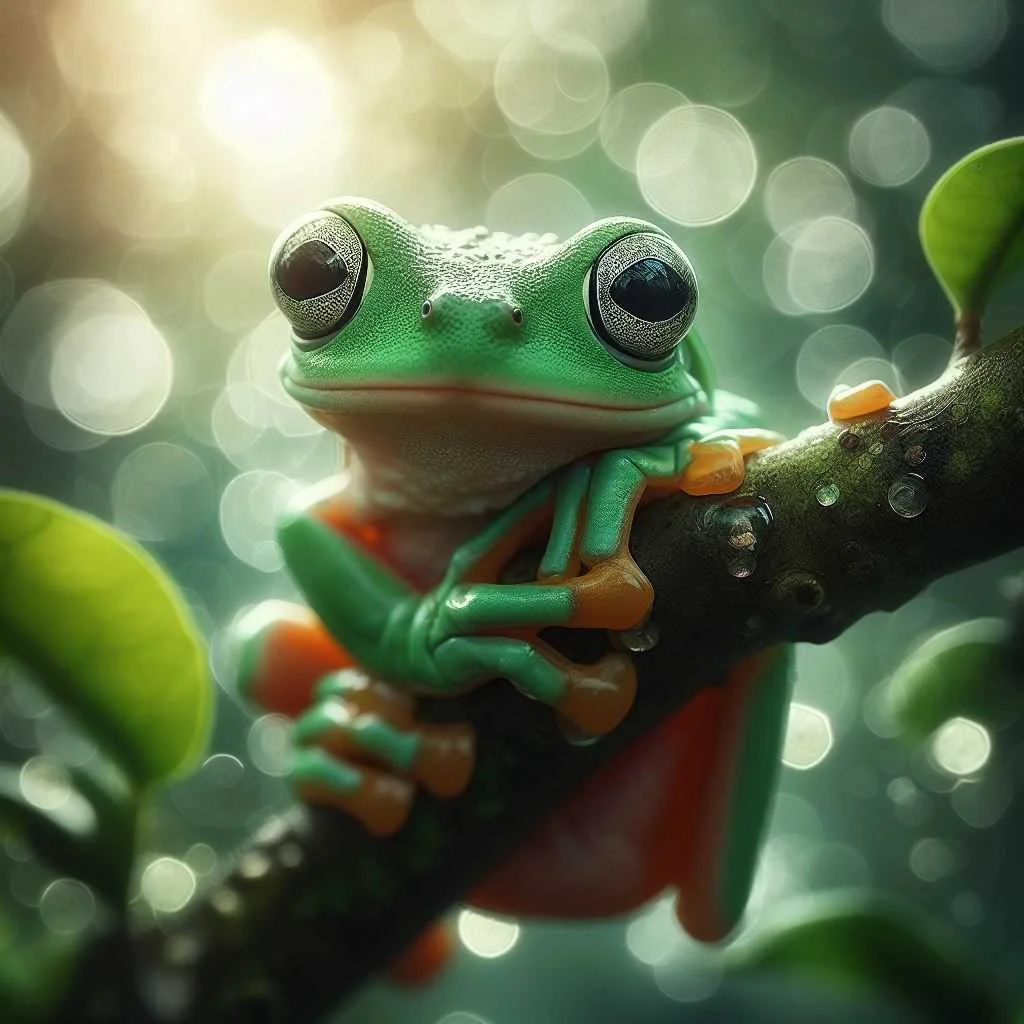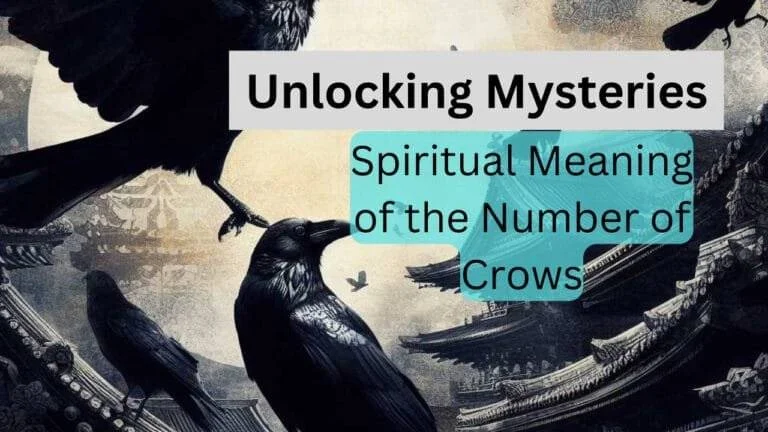Frog Spiritual Meaning in the Bible -Books and Movie library

The Symbolism of the Frog
Both toads and frogs belong to the order Anura, but symbolically a frog is very different from a toad. Frogs account for around 88% of extant amphibian species. Warty frog species tend to be called toads, but the distinction between frogs and toads is informal. Frogs tend to have long legs, longer than their head and body, which are made for hopping. Toads, on the other hand, have much shorter legs and prefer to crawl around rather than hop.

Frogs have smooth, somewhat slimy skin. Toads have dry, warty skin. But frogs have a special place in symbolism because of their strange lifecycle – they start as eggs, hatch into tadpoles with gills and a tail, then they lose that tail as they develop into adults with lungs and legs. So the transformation that takes place is as extraordinary as a butterfly’s. But it is its mention in one ancient and very special hymn that tells us most about the symbolism, the Rig Veda.
Also Read This: Biblical Meaning Of Wren
What does the Bible say about frogs?
In the Book of Exodus (Exodus 8:1-15), frogs are a central element in the second plague that God sent upon Egypt. Moses, acting as God’s messenger, summoned a multitude of frogs to overrun the land. The frogs invaded every corner of Egypt, including the Egyptians’ homes, serving as a divine sign and a plea for Pharaoh to release the Israelites from slavery. The plague was only lifted after Pharaoh begged Moses to intervene and remove the frogs.
What does frog stand for in Christianity?
Unlike certain symbols like the lamb or the fish, the frog does not hold a specific symbolic meaning in Christian theology. Instead, its significance is primarily contextual, tied to the biblical narrative of the plagues in Egypt rather than broader Christian symbolism.
What does the frog symbolize spiritually?
In spiritual symbolism, the frog is often associated with transformation and renewal due to its life cycle. The process of tadpole to frog mirrors personal growth and change. Additionally, the frog’s connection to water reinforces spiritual cleansing and purification themes in various cultures.

What is the spirit of the frog?
The “spirit of the frog” is a metaphorical concept that might be interpreted as embodying qualities such as adaptability, metamorphosis, and the ability to navigate both water and land. It’s a symbolic representation of embracing change and transformation in one’s life journey.
Are frogs a religious symbol?
While not a central religious symbol, frogs hold significance in certain religious contexts. They are often symbolic in mythologies, representing various themes like fertility, cleansing, and transformation, depending on the culture.
Do frogs represent wealth?
In some cultures, particularly in Chinese folklore, the frog is associated with wealth and prosperity. The “money frog” or “three-legged toad” is a popular symbol believed to attract financial success.
Which God represents frog?
There is no specific god directly associated with frogs in mainstream religious beliefs. However, in certain mythologies, gods may have connections to animals, including frogs, in their symbolic or narrative roles.
What God is associated with frogs?
In the biblical context, frogs are associated with the God of Israel. The use of frogs as a divine sign and part of the plagues in Egypt underscores the power and authority of the God revealed in the Old Testament.
Does frog bring luck?
In various cultures, especially in Eastern traditions, frogs are considered lucky symbols. Their association with water, an essential element for life, and their role in attracting rain make them symbols of good fortune.
Is seeing a frog good luck?
Yes, in many cultures, seeing a frog is considered a positive omen. It’s often interpreted as a sign of upcoming positive changes, transformations, or opportunities.
What does frog mean in a house?
Finding a frog in a house can be seen as a symbol of unexpected positive changes, personal growth, or renewal. It may also represent the need for adaptation and flexibility within the household.
What animal symbolizes Christianity?
The fish, specifically the Ichthys or Christian fish symbol, is widely recognized as a representation of Christianity. It has historical roots in the early Christian community and symbolizes faith and discipleship.
Where did frogs come from in the Bible?
In the Bible, frogs were divinely brought upon Egypt by Moses, acting under the command of God. They emerged from the Nile River and spread throughout the land, serving as a manifestation of God’s power and a call for Pharaoh to release the Israelites.
What do frogs represent in dreams?
In dreams, frogs may symbolize subconscious thoughts of transformation, change, or renewal. The dream context, the actions of the frog, and the dreamer’s emotions all contribute to the interpretation.
Does frog mean fully rely on God?
While the phrase “fully rely on God” is not directly associated with frogs in the Bible, the narrative of the plagues underscores the concept of reliance on God’s power for deliverance and redemption.
Are frogs a biblical plague?
Yes, frogs are one of the ten plagues described in the Book of Exodus. God sent them upon Egypt as a demonstration of divine power and judgment, aiming to convince Pharaoh to release the enslaved Israelites.
Where are frogs mentioned in the Bible?
Frogs are specifically mentioned in the Book of Exodus (Exodus 8:1-15), where they play a significant role in the second plague sent by God upon Egypt.
Do frogs mean fertility?
In some cultures, frogs are associated with fertility due to their connection to water, a symbol of life. Their abundance and reproductive capabilities contribute to this symbolic association.
Is the frog the symbol of peace?
The frog is not commonly recognized as a symbol of peace. Traditional symbols of peace often include the dove or the olive branch, which carry specific cultural and religious associations.
What do Hindus believe about frogs?
Hindu beliefs about frogs can vary. In some traditions, frogs may be associated with rain, fertility, and transformation, playing roles in certain mythological narratives.
Are frogs good or bad?
Frogs are generally neutral creatures in reality. However, their symbolic interpretation as good or bad depends on cultural, religious, or individual perspectives.
What animal is good luck for money?
Various cultures associate different animals with good luck for money. In Chinese culture, for example, the dragon is considered a symbol of wealth and prosperity.
What animal symbolizes rich?
The dragon is often associated with wealth and prosperity in different cultures. Its mythical qualities and association with abundance contribute to its symbolism.
How do I know my spirit animal?
Discovering one’s spirit animal can involve introspection, meditation, and paying attention to recurring animal symbols in one’s life. It is a personal and subjective experience.
What is the meaning of frog?
The meaning of a frog varies across cultures and contexts. Generally, frogs symbolize transformation, adaptability, and renewal due to their unique life cycle and amphibious nature.
Who are the four frog gods?
There isn’t a widely recognized set of four frog gods. In various mythologies, deities associated with frogs may differ, and the number and identities of such gods vary.
What is the genesis of frog?
The biological genesis of frogs lies in their evolutionary development as amphibians. In cultural or mythological contexts, the origin stories and symbolism surrounding frogs are diverse.
What is the meaning of frog in Hebrew?
In Hebrew, the word for frog is “צְפַרְדֵּעַ” (tsfarde’a), and its biblical significance is tied to the second plague in Egypt, as recounted in the Book of Exodus.
What do frogs represent in Exodus?
In the context of Exodus, frogs symbolize a divine sign and a demonstration of God’s power. They serve as a plea for Pharaoh to release the Israelites and a consequence for his refusal.
Why did God send frogs to Egypt?
God sent frogs as part of the plagues in Egypt to convince Pharaoh to release the Israelites from slavery. The frogs were a manifestation of divine judgment and a call for repentance.
What does the Bible mean when it rains frogs?
The phrase “rains frogs” isn’t explicitly found in the Bible. Metaphorically, it might symbolize an extraordinary or miraculous event, akin to the biblical plagues, rather than a literal meteorological occurrence
The Rig Veda
The Rigveda is an ancient Indian collection of Vedic Sanskrit hymns (sūktas). And one of those hymns is the Hymn to the Frogs. The Rigveda is the oldest known Vedic Sanskrit text and its early layers are among the oldest extant texts in any Indo-European language. The sounds and texts of the Rigveda have been orally transmitted since the 2nd millennium BCE.

The hymn to the frogs in the Rig Veda holds great symbolism in Hinduism, Buddhism, and Kabuki theatre. The frogs in this hymn symbolize the spiritual experience and transformation. The bulging eyes of the frogs are a symbol of a person undergoing an intense spiritual experience. Frogs with their huge bulging eyes are associated with spiritual experience.
There is also added symbolism if the frog is found in a well. A “frog in a well” means someone with a narrow vision of life, not an experienced adept but someone in danger of thinking they know it all.
Alice in Wonderland and the Frog Footman
Lewis Carroll, the author of Alice in Wonderland, was aware of the symbolism of frogs in Hindu texts. He chose to incorporate a Frog Footman in Alice in Wonderland. The Frog Footman is depicted as having bulging eyes and a laid-back attitude, symbolizing the spiritual experience and the frog’s association with wisdom.
Also Read This: Biblical Meaning Of Wren
The Significance of Āśrama
Āśrama is a system of stages of life discussed in Hindu texts. The Brahmacharya stage of life represents the bachelor student stage, focused on education. Frogs are symbolically associated with the Brahmacharya stage, as they represent students during this stage of life.
During the Brahmacharya stage, students practice celibacy and self-discipline, acquiring knowledge and learning to live a life of righteousness. Frogs, in their transformation from tadpoles to adults, symbolize the transition from the Brahmacharya stage to the next stage in life.
The Frog Hymn
The Hymn to the Frogs in the Rig Veda praises the frogs and their voices. The frogs are seen as the symbol of students, who have completed their education and are ready to enter the next stage of life. The hymn describes the frogs coming together and celebrating the arrival of the rainy season, which represents freedom from celibacy and the restrictions of the student stage.
The frogs in the hymn are compared to Brahmans sitting around a vessel at the Soma-rite, discussing and reveling in the flow of waters. The frogs’ voices are described as modulating and conversing with each other, symbolizing the newfound release from celibacy and the joy of the householder stage.
The Symbolism of Rain
Rain has great symbolic meaning in Indian society. It transforms and rejuvenates, providing life to a parched and barren earth. The frogs in the Rig Veda, with their croaking and celebration of the rainy season, symbolize the arrival of the monsoon and everything it represents.
The frogs’ croaking is seen as a literal call for rain, and the Hindus viewed the frogs as “rain-callers.” They even sacrificed frogs to bring on the monsoon. Unfortunately, due to habitat destruction, 80% of India’s frogs are facing extinction, which is a tragedy considering that frogs are the main predator of mosquitos.
Conclusion
The symbolism of the frog in the Bible is deeply rooted in Hindu texts, particularly the Rig Veda. Frogs symbolize spiritual experience, transformation, and the transition from the Brahmacharya stage to the householder stage. The Hymn to the Frogs in the Rig Veda celebrates the students’ graduation and the arrival of the monsoon. The frogs’ croaking represents their joy and newfound freedom from celibacy. It is important to recognize and preserve the symbolism of the frog and its spiritual significance.






